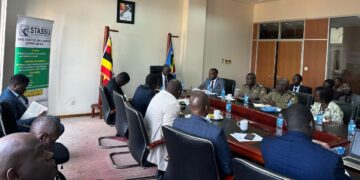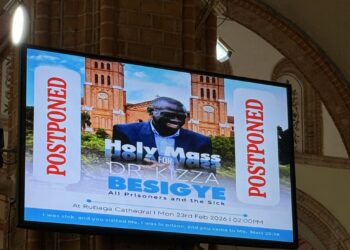By Leonard Kamugisha Akida,
NATIONAL
“Its high time that people running our economy must stop giving people those misleading statistics. Modern economy is a fallacy in Uganda.” Kaijja said
At the state of the Nation Address also known as SONA on June 7 at Kololo independence grounds; President Yoweri Kaguta Museveni remarkably said that Uganda had surpassed the middle income status threshold of $45.7 billion and was awaiting for declarations.
The president said this has been achieved in spite of the many challenges that the country has faced in recent times noting that despite the CIVID-19 crisis and the high population growth, the Gross Domestic Product has continued to grow.
According to Museveni, the nation’s economy stood at about $45.7billion by the exchange rate method or $131billion by the Purchasing Power Parity (PPP) system-in the FY2021/22.
“This means that the GDP per capita is $1046. We have now passed that figure of middle income status ($1,030),” Museveni said
However, the world bank has since dismissed the reports that Uganda has attained a middle income status putting the per capita income of Uganda at 850 dollars for the financial year end 2022.
The world’s debtor noted that Uganda’s economy is growing at an estimated 3.7 percent
Ms. R. Mulami Kariuki, the world bank country manager in Uganda says although there has been economic growth in Uganda, the population also grew at about the same rate with the economy leaving the per capita income stagnant.
“Overall growth for FY22 is estimated at 3.7 percent – below the pre-COVID-19 projections of over 6 percent, leaving Uganda’s per capita income estimated at about US$850, well below lower-middle-income threshold of US$1,045 per person,” said the World Bank’s 19th State of the Economy Update.
Kariuki noted that Uganda would have attained lower-middle-income status already if the strong growth rates of (between 6 and 10 percent) posted between 2001 and 2011 had been maintained.
The report by the world bank showing that Uganda is far from the middle income status has attracted debates in the public domain with many demanding for a public apology from the government and President Museveni over what they say is telling lies to Ugandans.
Harold Kaijja, the Deputy Secretary General of the country’s popular opposition political party, also an economist in the country says that its embarrassing for the president to lie to Ugandans on the middle income status demanding for an apology from government.
“If Uganda was a democratic, we would have got an apology from government and some people would have resigned,” he said.
Kaijja warned government against giving people false statistics for their political gains.
“Its high time that people running our economy must stop giving people those misleading statistics. Modern economy is a fallacy in Uganda.” Kaijja said
“We can’t go to the real middle-income status when hyenas whom we gave our custody of the sheep are consuming the sheep. Ugandans it’s high time to ask for accountability, if we don’t do this, we are to be captives forever in our own country!” Kaijja added.
He was speaking to journalists during the FDC press briefing on Monday at Najjanankumbi Kampala.
In addition, Kaijja stated that the absence of the governor of the Bank of Uganda has slugged accountability for the nation’s monetary policy henceforth causing to misleading statistics on the economy
“We are getting into six months without hearing about the search of the governor. The powers of the deputy are limited. Who is accountable to moneyary policy of this country?” Kaijja asked
He appealed to government to appoint the governor of the Bank of Uganda to deal with the monetary policy in Uganda if the country wants to achieve its goal to attain the middle income status.
About Middle Income Status
According to the World Bank, middle-income countries are defined as lower-middle-income economies if they have a Gross National Income per capita between US$ 1,036 and US$ 4,045. The gross national income is the total domestic and foreign output claimed by residents of a country, consisting of gross domestic product, plus factor incomes earned by foreign residents.
It excludes income earned in the domestic economy by nonresidents. On the other hand, GDP is the total monetary value of all the finished goods and services produced within a country’s borders in a specific time period.







































